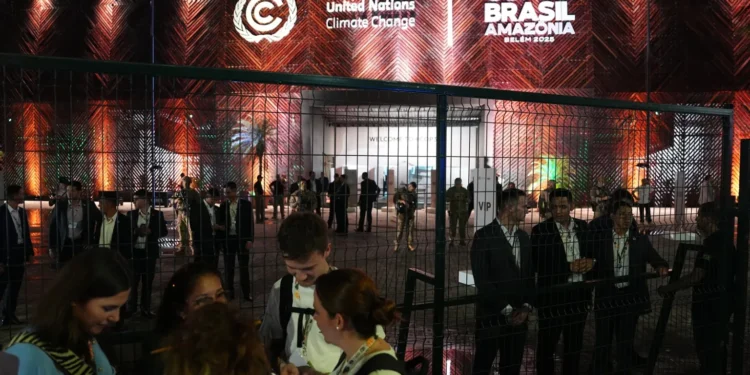Tensions flared at the COP30 United Nations Climate Summit in Belém, Brazil, as a group of Indigenous protesters forced their way into the conference venue, confronting security personnel and demanding access to the main UN compound. The incident disrupted proceedings late in the day, as thousands of delegates were leaving the summit premises.
According to reports, the protesters — many carrying flags and banners calling for land rights and declaring “Our land is not for sale” — were pushed back by security guards at the entrance of the venue. A spokesperson for the UN climate agency confirmed that two members of the security staff were injured during the altercation. Witnesses told Reuters that one guard was taken away in a wheelchair.
The UN stated that its security personnel “followed established protocols” and took protective measures to ensure the safety of delegates and staff. The COP30 presidency office said that questions regarding the incident should be directed to the United Nations, as the compound falls under its jurisdiction.
Protesters, many from Indigenous communities across the Brazilian Amazon, expressed anger over deforestation, illegal mining, and the expansion of agribusiness in their territories. “We can’t eat money. We want our lands free from agribusiness, oil exploration, illegal miners, and illegal loggers,” said Gilmar, an Indigenous leader from the Tupinamba community near the Tapajós River.
The entrance to the venue was temporarily blocked with tables as security attempted to restore order. Hundreds of demonstrators who had marched to the summit dispersed shortly after the confrontation. COP30 delegates were instructed to remain inside until the situation was under control.
Brazilian President Luiz Inácio Lula da Silva, who has repeatedly emphasized the vital role of Indigenous peoples in climate negotiations, is expected to address the incident in upcoming briefings. The clash has underscored the growing frustration among Indigenous groups seeking stronger recognition and protection of their ancestral lands in global climate discussions.




















